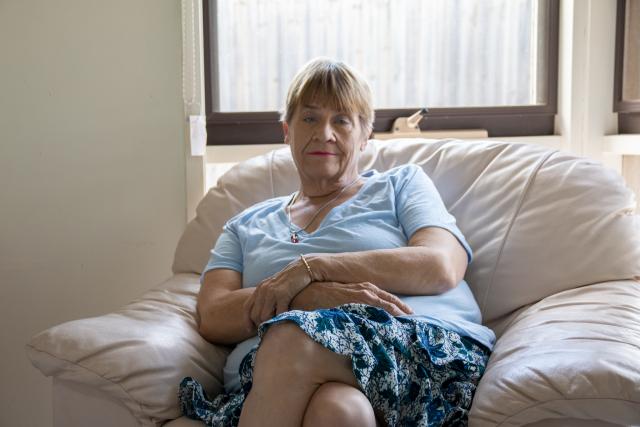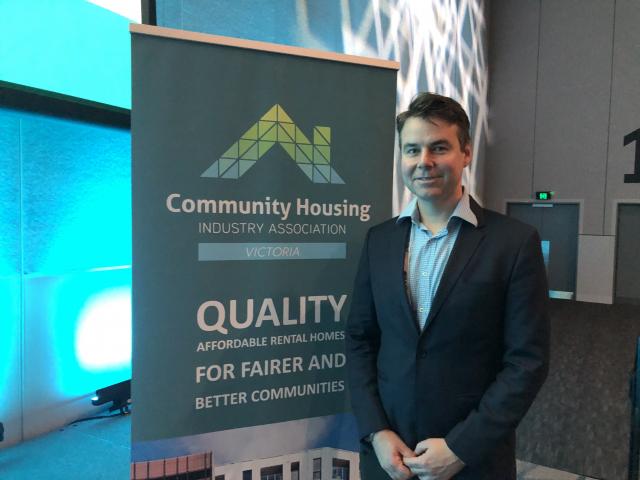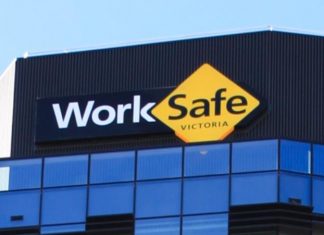
Liam McNally
The rental market has been tightening across Australia, Liam McNally spoke to residents and community groups in Melbourne’s west to see how it is impacting individuals on the ground and what is being done to address the issue.
Sharon Garrity said she was already living on just $10 a fortnight after paying rent and bills when her landlord increased the rent for her West Melton unit by $90 a fortnight.
Unable to pay the extra rent, Ms Garrity decided she needed to move but was unable to find any rentals she could afford on her disability pension.
“I suffer with bipolar, and there was many a night when I’d just cry myself to sleep at night wondering how the hell I’m going to get through life,” she said.
Ms Garrity’s story is not isolated, according to Anglicare’s Rental Affordability Snapshot, median weekly rents in Metropolitan Melbourne have increased $75 per week since 2019.
The report showed on March 18 there was only one rental in Victoria considered suitable for a single person on the disability pension to rent out of the 11,687 rentals listed, and the figure dropped to zero for people on Jobseeker or Youth Allowance payments.
In Melbourne’s west, CoreLogic data reveals rental prices in Melbourne’s west have increased 8.6 per cent in the year to March.
CoreLogic economist Kaytlin Ezzy predicted an imbalance of supply and demand will increase rents further.
“The reacceleration of Australia’s rental market won’t be welcome news for those tenants already struggling to find affordable accommodation in our capital cities,” she said.
“There’s already a chronic undersupply of advertised rental stock in many parts of the country that’s translated into record low vacancy rates across most capitals.”
Ms Garrity said she was on the priority wait list for government housing, but was told the wait time is 20 years.
She found herself relying on private charities for help, utilising local food banks, and eventually getting into a new rental with support from the Salvation Army.
“If it wasn’t for the Salvation Army, I don’t know where I’d be today … I’d probably be homeless now,” she said.
“The rents are just ridiculous, people can’t survive with the rents going up and up all the time.
“There’s a couple down the road sleeping in the park. There were about three different families there at one stage.”
Salvation Army western metro private rental assistance program senior case manager Jessica Grace said has noticed the effect of rent increases in the western suburbs.
“In particular, more ‘affordable’ suburbs like Werribee and Melton have seen rental prices change quite rapidly … more households are presenting to our service seeking assistance to find alternative or ‘cheaper’ properties with $50 per week increases becoming the new normal,” she said.
“Low-income earners have always struggled to make ends meet in the private market and it’s common for clients to tell me that they have skipped meals or went without medicine to pay bills or rent.
“The current economic challenges and lack of affordable housing means there has been an increased number of people on the disability and aged pensions seeking support to sustain and establish tenancies.”
From Wednesday, April 22, Community Housing Industry Association Victoria (CHIA Vic) held a two-day conference in Melbourne to unpack the housing demand in Victoria.
Analysis by CHIA Vic shows by early next year, tenants in Melbourne could be spending an extra $64 per week, or $3800 extra in a year.
CHIA Vic acting chief executive Jason Perdriau said social and affordable housing should be central to the state government’s planning reforms.
“It’s clear Victorian renters are being let down by the private market. Right now, Victorians have limited affordable housing options with the state having the lowest proportion of social housing in the country. This is unacceptable,” Mr Perdriau said.
A state government spokesperson said there is high demand for social and affordable housing options across Victoria and Australia and “we are using all the levers within our control to house as many people as possible as quickly as possible”.
“The Andrews Labor Government is investing record amounts to increase the supply of social housing across the state – under the historic $5.3 billion Big Housing Build, we are on track to deliver more than 12,000 new social and affordable homes for Victorians to house applicants from the Victorian Housing Register,” they said.
“Melbourne’s west is a key area for the Big Housing Build, with a combined $386 million in funding for homes across Melton, Maribyrnong, Wyndham, Brimbank, and Hobsons Bay local government areas. This will fund a total 865 new homes, of which 225 are already complete.”
Mr Perdriau said that while he is supportive of the Big Housing Build, more work is needed.
“The Big Housing Build has and will continue to be life changing for many Victorians but funding is drying up,” he said.
“The Victorian Government can continue the momentum of this historic investment by investing $6 billion in a Social Housing Investment Fund to deliver 20,000 social homes over the next decade.”
Along with more affordable and government housing, Anglicare are advocating for increases to income support payments, including for Jobseeker to be raised above the poverty line.
Federal social services Minister Amanda Rishworth said the government is assessing income payment supports before the budget, which will be made public on May 9.
“We know that people are doing it tough. Inflation has driven up costs for a range of reasons and people are feeling it at the supermarket and in their bills and services,” she said.
“We will ensure that every budget we hand down is developed in consideration of the measures we can take to support people in Australia who are doing it tough. This will include energy bill price relief that prioritises those on payments and pensions.
“In the May budget and beyond, the Albanese Government will continue its work to build a stronger, fairer and more inclusive society where more Australians have the chance to contribute and share in our economic success.”







